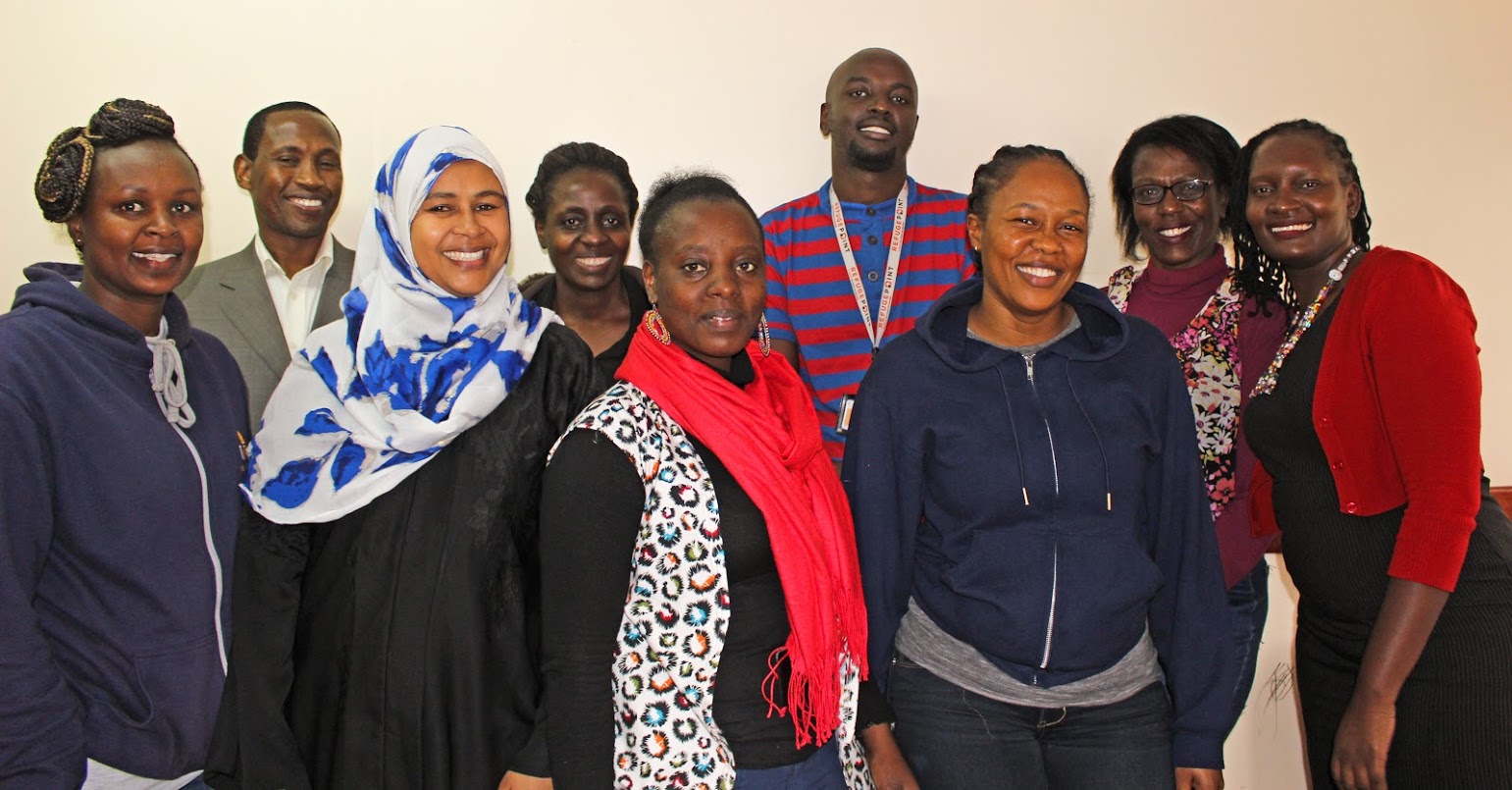Take a moment to imagine the life that you want to create for yourself. At its core, it’s probably a life of emotional and mental wellness and financial stability. A life in which you are able to take care of yourself and your family. Now, imagine that there is someone by your side to help you create a plan to achieve those goals with the resources that are available to you, and to guide you through the process.
That is the crucial role that RefugePoint social workers play in the lives of our clients. Each client household served by RefugePoint is assigned a social worker to act as its case manager. Through a collaborative effort, clients have the opportunity to describe how they want to change their circumstances and how they can use their skills and resources to get there. The RefugePoint case manager then commits to supporting the client throughout the process, reviewing and adjusting the case plan with the client on a regular basis. This process continues until all of the identified goals are met, or the client is no longer willing to engage in the process. Each RefugePoint case manager handles 50 households at any given time.
RefugePoint social work team operates based on the principle that the best way to assist refugees is to help them feel empowered to support themselves and their families. RefugePoint social workers guide clients through three stages of case management: stabilization, empowerment, and graduation:
Entry
Prior to the involvement of the social work team, RefugePoint’s Outreach team identifies and assesses new clients using a tool called the Self Reliance Measurement Tool (SMRT). The SRMT is used to collect basic indicators of family well-being/poverty, security, and need. It is a comprehensive look at a family’s well being and uses a 1-4 scale to rank well being (1 being very bad, 4 being excellent). Safety and security are prioritized over financial well-being. A home visit is made, and scores are given in the areas of shelter, food security, non-food items (household physical needs such as bedding, cooking implements), livelihoods, protection, health, mental health, and child protection. An aggregate average of these scores is then calculated and used to help staff prioritize cases and hone in on particular needs. Clients are considered self-sufficient if they score over 3.5. Those clients scoring 2.7 or below are considered at-risk and are assigned to the social work team to begin stabilization.
Stabilization
Once clients have been assessed and entered into the Urban Refugee Protection Program (URPP), a RefugePoint social worker is assigned as their case manager. The case manager visits the clients, collects bio-data, and helps to develop the case plan. The case manager uses the SRMT score as a basis to work the client, by identifying indicators with the lowest scores and working with the client to find solutions. For example, if a client scored a 1 out of 4 on shelter, the case manager would inquire about housing issues, and seek solutions alongside the client.
At this point, the case manager may refer the client for stabilization services like medical support, counseling, basic non-food items like bedding and cookware, and:
Food assistance: RefugePoint’s food distribution system supports the family as the most effective structure. Only in exceptional circumstances, and for short periods, does the focus of food assistance move from the family level to individuals within the family.
Rent assistance: RefugePoint recognizes the crucial need for shelter as part of its holistic model of supporting refugee individuals and families to maintain health, privacy, and dignity. In RefugePoint’s model, rent assistance provided is for a short time while the clients are referred to livelihoods or other relevant services to work towards self-reliance.
Education assistance: RefugePoint recognizes that education is a means by which refugee children can uplift themselves and participate in the development of their communities. Education serves as a protection and integration tool for refugee children in their country of asylum. Refugee children are often unable to attend school, as the limited resources of the family must be directed towards food and shelter as opposed to education. RefugePoint provides uniforms, school fees, and academic materials to vulnerable refugee children to enhance access and retention in school.
The case manager may also make external referrals to link clients for services beyond RefugePoint’s scope, such as legal support. To ensure progress toward self-sufficiency, case managers follow-up with clients on either a weekly or monthly basis (depending on the long and short-term goals of each household).
Empowerment
Case managers may refer clients for support groups or livelihoods support (business training and small business grants to launch a business) to promote self-sufficiency.
Graduation
At any given time, the URPP has a core caseload of 1,200 clients. Our goal is to assist clients towards self-reliance and graduate clients from services within two years, so that new clients may be helped. Even after graduation, clients may continue to receive services like counseling, medical assistance, and resettlement assistance. Graduation can occur in four different ways:
- If a household receives an SRM score of greater than 3.5, indicating that the family or individual is self-reliant.
- Client(s) voluntarily exiting the program.
- The resettlement of the client(s).
- When a case has received all of the required support services to achieve their goal, but the client(s) remains un-cooperative.
Read More:
